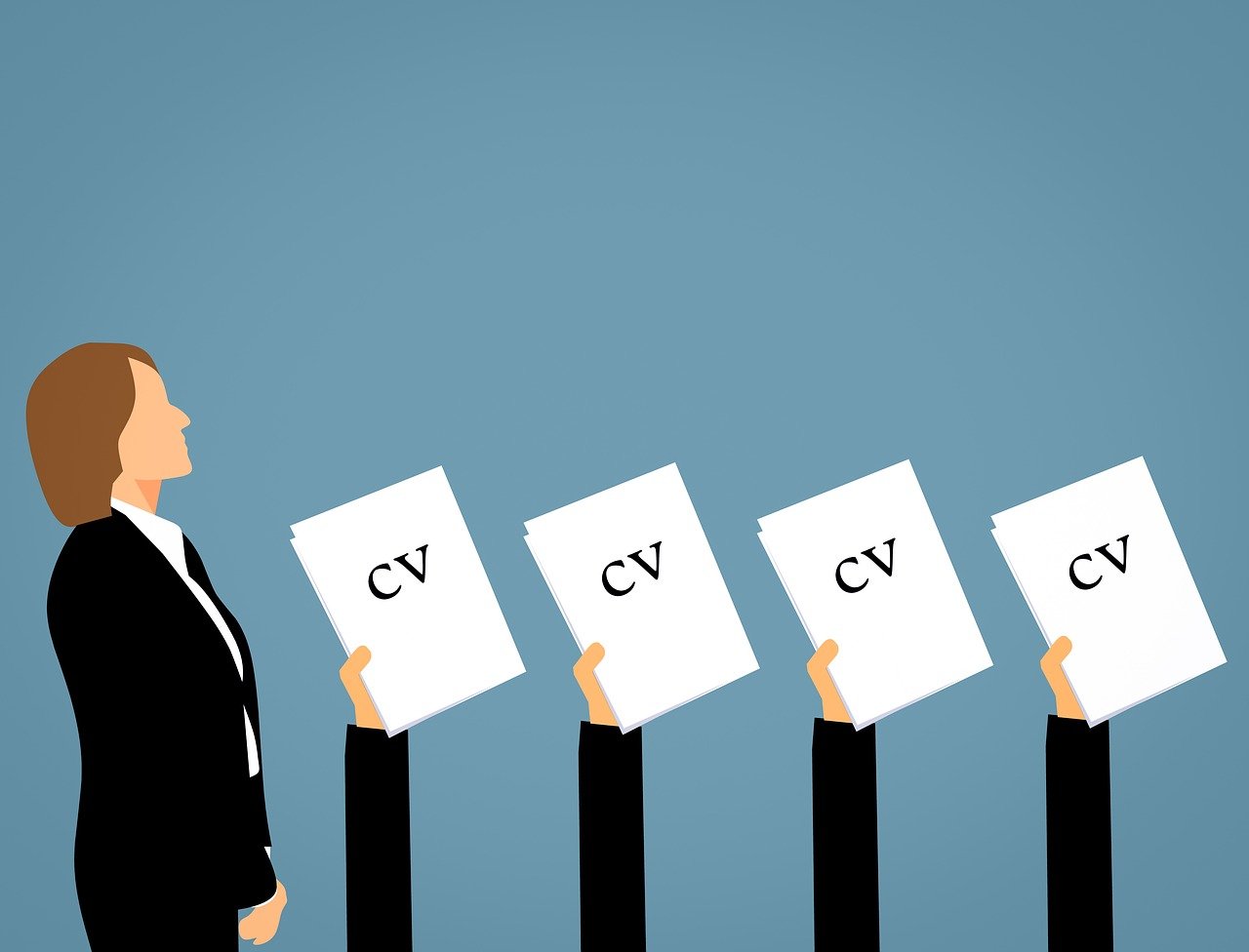


Today, the world of work is changing. Organizations around the globe are adapting to a changing workforce, a changing economy, and entirely new ways of doing business. If you are currently in a hiring role, join as I dive into building a team, what recruiters and managers alike should look for in their ideal candidate. Finally, I’ll give you steps to help you maintain engagement in your workplace and retain your top talent.
Author Amber Vanderburg, International Keynote Speaker - Founder of The Pathwayz Group.
Job of a recruiter (HR) can be broken down into 4 major functions: 1) build a team by recruiting employees, 2) bringing value and resources to your team, 3) train your team to be successful and 4) retain your team. As a recruitment specialist, your job is to set the recruitment process in your company. It includes finding the best future team members and interacting with applicants. Your interaction with candidates can be very representative about their future experience of working in this company and affect the company’s reputation. General qualities of a good recruiter include intentional creation of company culture and identification of the best strategy to do so. A good HRs keeps theirs documents and procedures well organized. They comply with regulations and industry standards.
Culture. First, you should understand what type of culture you want to build for your organization. It is crucial for an organization because we have spent a lot of time at our workplace and having a good atmosphere at work is very important for efficiency of an organization and happiness of employees. If you understand the culture you need for your company you will know better what kind of people you need to hire.
There are several methods to build your hiring pipeline. It could be a combination of different approaches depending which positions you need to fill in. Usually it is a mix of approaches depending on whom you want to find.
Standard online applications. This approach brings a broad spectrum of profiles and promotes diversity, however it has a low efficiency due to excess of irrelevant applications.
Internships, college programs, etc. This approach allows you to test each other before signing an actual working contract.
Recruitment events
Sourcing. This approach works mostly for high level positions where HR picks candidates by himself. It is very efficient for high level positions, but it is a difficult and time consuming process.
Referrals. It is very effective approach for building a team. However there is low control of people selection from HRs.
First, I read carefully the job description to understand specific requirements for this position. Then, depending on the position, I look for those specific skills for that position in the resume. On the recruiter level you should be aware of conscious and unconscious biases, such as age, geographic localization, etc. Instead it I prefer to focus on job requirements. At the stage of application, when you receive application it is important to reply with a confirmation that the application was received, that his candidacy was viewed and you are interested or not (replying after 6 months or not replying at all is not a good HR practice).
The interview process should be well-arranged. A multi-level interview process should be reasonably set depending on a particular position. The rounds of the interview process should be very clear in term of timeline and format. The interview process should be adapted for the company type and goals. Interview questions should be specific and efficient to find exceptional and most suitable candidates.
Candidate’s personality is crucial to create an ideal team. HRs are looking for an ideal team player for their company. The ideal team player possesses 3 key features simultaneously as Patrick Lencioni writes in his book “The Ideal Team Player: How to Recognize and Cultivate The Three Essential Virtues”. An ideal team player is: 1) humble (ready to learn, adapt, listen to others, admit mistakes, and improve), 2) hungry (a drive to do grow and develop), 3) and smart (emotionally intelligent). It is important to have all these 3 factors. In your interview process ask questions to define whether your candidate possesses all these factors. You should identify whether he is ready to adapt and change, which is especially important nowadays. Ask questions how they react and adapt in difficult situations, so you can project how this person as a part of your team will handle similar situations. You should ask your candidate whether he has a drive to grow and necessary independence. It is especially important these days as many of us work remotely. Finally, you should understand whether the candidate has an emotional intelligence.
At the stage of hiring, HR decisions should be unbiased (sex, race, nationality, etc.) and a good HR knows how to avoid bias in the process. As an HR, you should be good at negotiating salary, well prepared to negotiate different form of compensation in the best interest of the candidate, but keeping equity among current employees.
After hiring someone, you should provide a good onboarding process to make sure that person fits the company, becomes productive and feels as a part of team from his first day. A good company and HR know what they can provide to keep employees happy, motivated and productive. Good HRs know how to use well-developed a benefits package (medical insurance, paid vacations, free drinks, retreat events, etc.) to motivate their team. They provide proper recognition of employee’s value, they know to retain their best talents and how to keep them motivated. They provide genuine and specific recognition. Also, good HRs organise training and courses, coaching programs and provide a powerful, well documented feedback to employees.
[1.] Talk Understanding HR: Hire, be hired, and stay hired.
[2.] Patrick Lencioni “The Ideal Team Player: How to Recognize and Cultivate The Three Essential Virtues”.
[3.] Amber Vanderburg and Madecraft “HR Guidelines Everyone Should Know”.